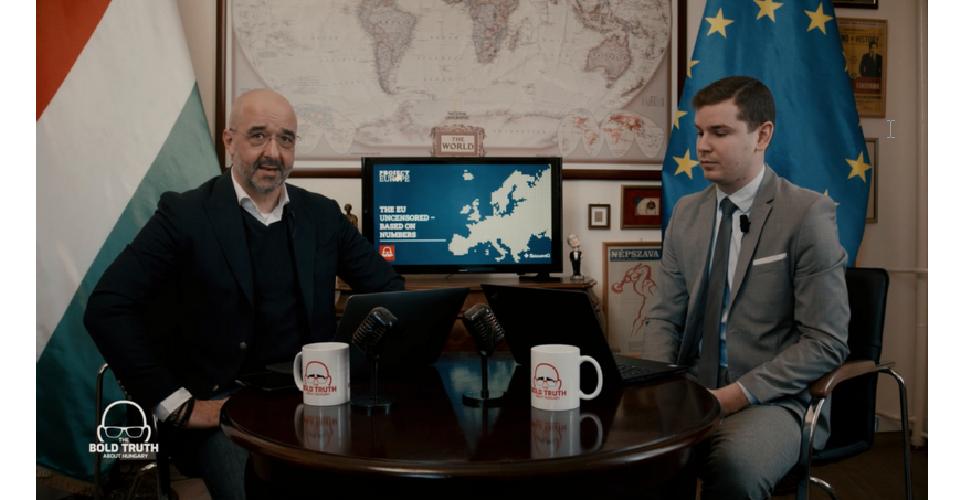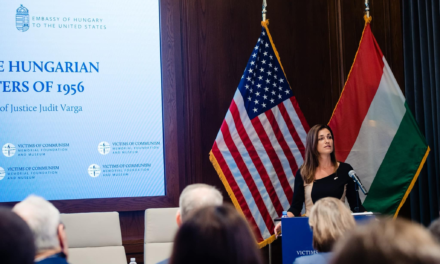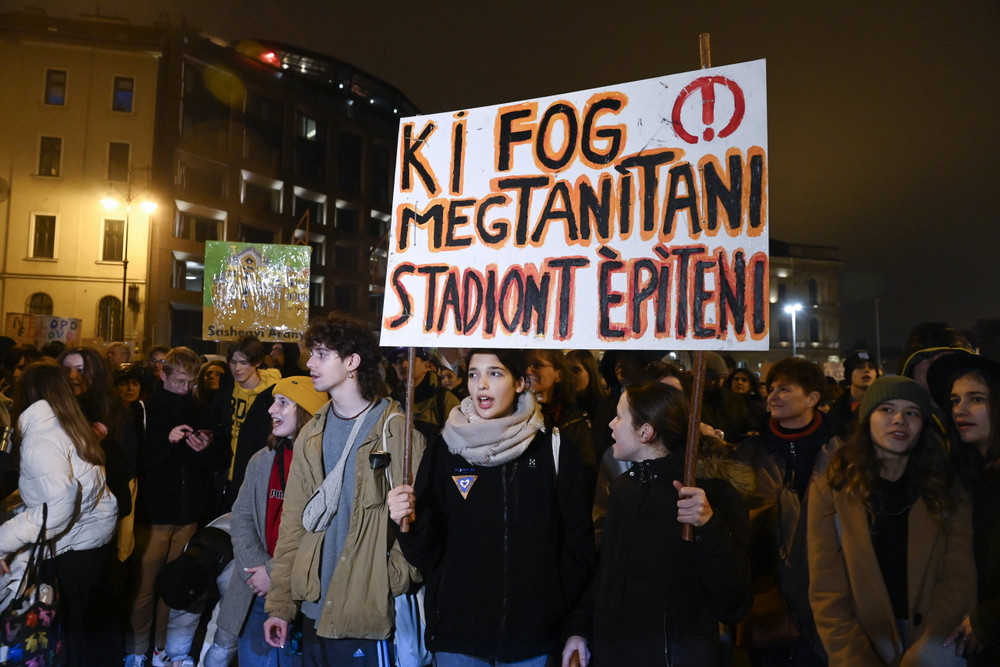Századvég's research shows that only a few countries want to follow the federalist direction in Europe, and there are many more member states that would rather be able to control Brussels more, rather than the other way around, Századvég's senior analyst told The Bold Truth About in the video blog Hungary.
Zoltán Kovács Lóránt Sümeghi, Secretary of State responsible for international communication and relations, presented the Századvég's comprehensive public opinion survey, which was conducted across Europe over the past seven years, with the participation of around 38,000 respondents, in his podcast, which is also available on YouTube. The analyst said: we hear a lot in the mainstream media and in Western political rhetoric that the European Union should move in a federalist direction and that this is what European citizens want. However, this is not true, and the findings of their own research completely contradict the belief that the mainstream media is trying to present today.
The same phenomenon can be observed with regard to the sanctions policy. The majority of countries are not satisfied with the results of Brussels' sanctions policy. And this goes against the public opinion spread by the artificial narratives and mainly by Brussels politicians, he said. In the blog, the researcher contrasted the policy of the Hungarian government with the woke culture coming from the United States, noting that many countries, the majority of countries, share the opinion that children under the age of 10 should not be exposed to LGBTQ propaganda, they should not be sexually provide information, and the education system must not be reformed in a way that allows such new waves and new phenomena to take root in Western society.
I think we can say that the whole issue of the importance of the family - and I must add that it is also related to the issue of preserving our Christian culture and traditions - appeared in its full significance especially after the migration crisis hit Europe in 2015, he said . He emphasized: European citizens and European politicians were then faced with the problem of demography and the threat of declining demographic trends in Europe. Their research shows that the position of the Hungarian government is much more popular among European citizens than it is set in Brussels. Regarding the Russian-Ukrainian war, Lóránt Sümeghi said: at the beginning, the European continent seemed united in the need to protect the ideology - whatever it may be - that they think needs to be protected. And the rhetoric from Brussels has been extremely aggressive. They firmly stood for the need to act and introduce very tough sanctions against Russia, he said.
The Sunday. hu's entire article can be read here.
Image: Youtube













